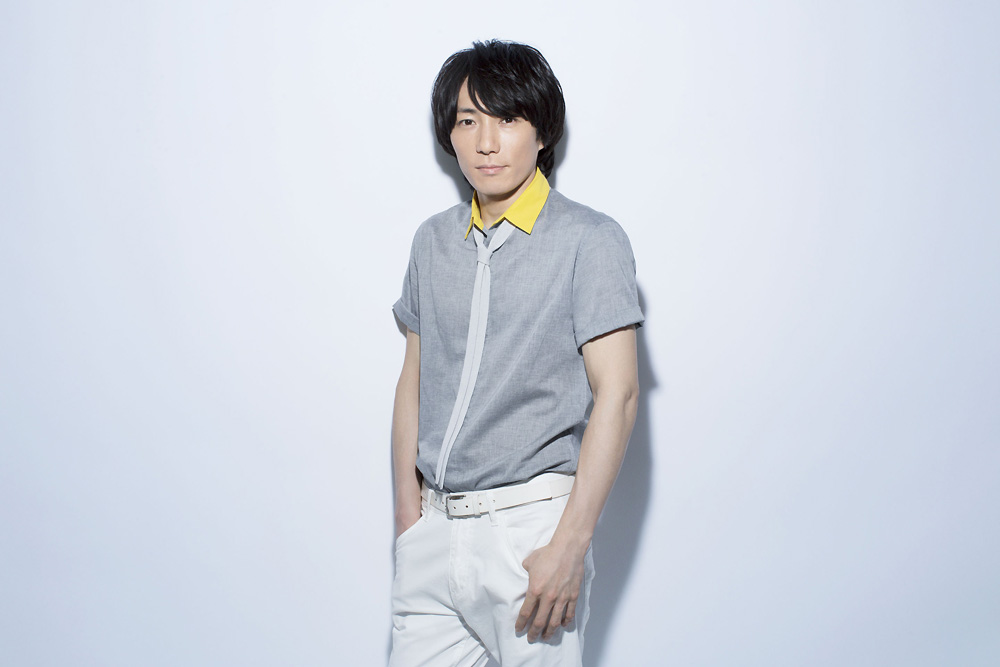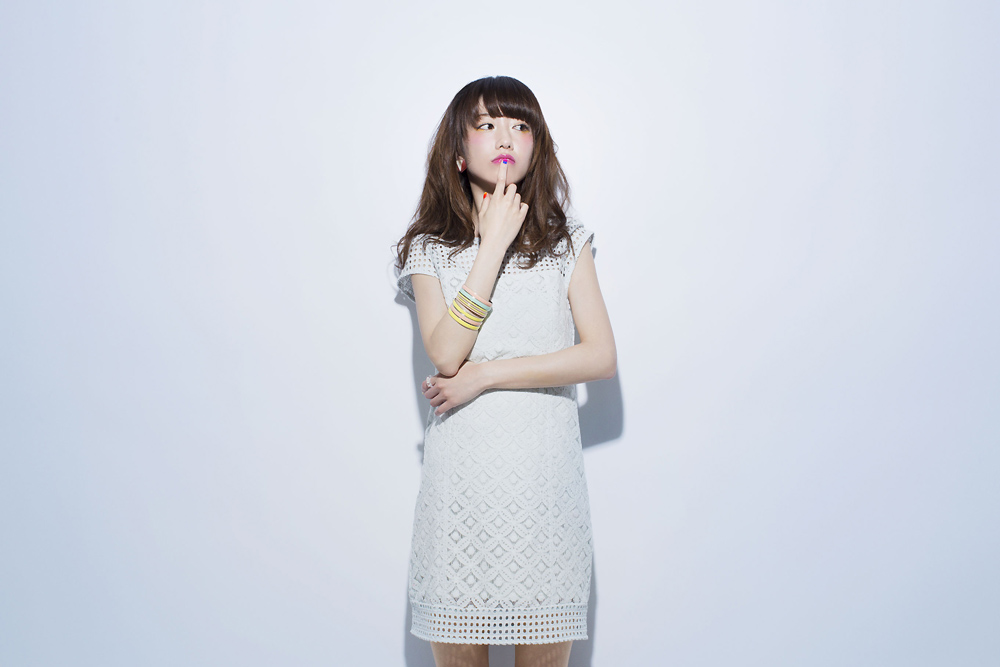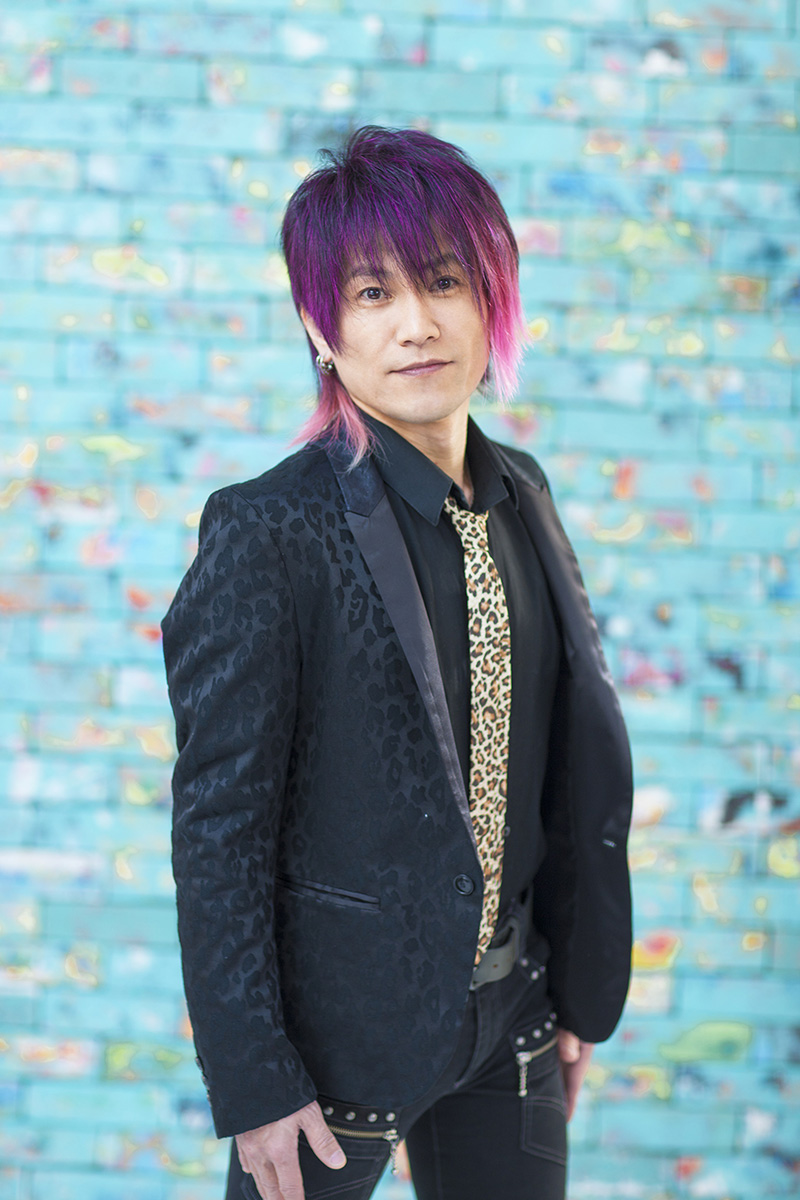moumoon
Interview by David Cirone
July 1, 2014

moumoon (YUKA, Kousuke Masaki) will perform at France’s largest Japanese culture and entertainment festival, Japan Expo, this weekend July 2- July 6.
NekoPOP interviewed the band known to Western audiences for their anime theme songs (One Piece, Yu-Gi-Oh!, Viper’s Creed), but even more famous in Japan due to their numerous contributions to television commercial campaigns (Shiseido, Canon, Ghana Milk Chocolate, Fauchon drinks by Asahi) and consistent presence on the Oricon charts.
What’s the best thing about being a member of moumoon?
YUKA: I think it’s keeping light on our feet. We can try and experiment with many things. I love experimenting with songs, and we can do live shows in many forms. I think both of us in moumoon are very free, and that’s the good thing about us.
Masaki: I think that the best thing about being a moumoon member is being able to express myself freely through music without being hung up on genres or forms. It’s fun to perform acoustic sets with just the two of us and also have an intense live show performing with other band members.

The full moon affects the tide of the ocean, and some people believe it changes people’s behavior. How does the full moon affect each of you?
YUKA: At night, I often go see the moon. I actually feel a burst of energy on full moon days!
Masaki: We have Full Moon Live shows on full moon nights every month. I look at the moon and prepare myself, thinking “It’s a full moon soon.” When it’s a new moon, moumoon is a little depressed. (*laughs)
How do the “Full Moon Live” shows keep you close to your fans? What do you get to do during these events that’s different from a normal live show?
YUKA: I think an important things to note is that we’ve been doing it for over 6 years. Having something to see on full moon nights every month must create a great connection. For the last few years, we’ve been live streaming over the internet from the recording studio, so the fans who can’t always come to the live house because they live far away and who live overseas can see it. We’ve made many connections through that, too. There must be many people who have seen our live shows only on the internet.
Masaki: We usually do our live streaming from our main studio, but we also have live shows at different locations, sometimes streaming from outdoors, even from Tokyo Tower. I think the visual aspect is part of what you remember about a live show. I hope that the fans can enjoy the changes with us together when we make different arrangements and when we use different instruments.
YUKA: The content is mainly acoustic versions of our songs, but we also add arrangements that are special just for those full moon live shows — something where both of us try playing different instruments, and where we play with a band. On the night of a Harvest Moon, we have a one-man live show at a large venue. We want the fans to always feel something fresh through our live shows. After all, we want them to see live shows in person because it feels good in person for sure, not through earphones or speakers. We definitely want to create more opportunities for the fans to see us live.

You’ve created songs for commercials and television programs. How do you create songs that will match a product but still have meaning by itself?
YUKA: I always think about “How does it match the advertisement?”, and at the same time I imagine “How will we deliver this song to the audience at live shows?” Whether I can imagine the scene at live shows is very important, although many times I don’t know until I actually perform it live.
Masaki: It may be difficult, but for commercial songs, the song itself doesn’t sound good if the feeling of the song and visual elements don’t match when they’re played together. This is what I think about first. However, in the end, when we create a song, it doesn’t matter how we started it — the song comes out as a song that has a meaning for moumoon. So we can naturally do both.
The song “Love is Everywhere” seems to be your theme song. How does the song’s message affect the way you treat other people?
YUKA: This song makes it easier to share the feeling of “Enjoy!” even with people who see moumoon for the first time at a live show. It’s close to saying “Hello!” with a smile, because I think it’s a song that makes you feel cheerful.
Masaki: We’ve played this song at every event and live show recently. When we play this song, everyone there is sort of filled with great love. I believe that’s what this song does. We really enjoy playing it, too. So I guess it is like our theme song, if you say so!
Sometimes the moon is dark, too. What moumoon songs fit the darker moods of life?
YUKA: “Aoi Tsuki to Ambivalence na Ai”, “Ai no Oto”, “myself”, “HEAVEN”, songs like that. moumoon is dark, too. Actually, many songs are melancholy or sad, at the same time there are many cheerful ones. I want you to listen to moumoon’s darker songs!
Masaki: Darker songs, actually we have many. “Banitasu” is dark but it has a speedy feeling and it gives you hope. It’s a cool song. “PAIN” is a song that reaches your heart slowly. If I have to pick one, I think it’s “myself.”
What inspired the dramatic cover image of “LOVE Before We DIE”?
Masaki: YUKA-chan had a very particular idea for this.
YUKA: “This time that you have, before dying, you have to love someone with everything you got.” This was the theme for the album, and out from that the heroine, a zombie girl, was born. We developed the story and situation with the art director, Kodai. I thought that moumoon would change greatly after making this album. The girl who is turning into a zombie soon overlapped with myself. The body is so damaged and there is little time left, but she wants to be held and kissed by the person she loves. This pure feeling and that exact moment is what we wanted to make into the jacket image.
moumoon has many fans all over the world, and you’re getting ready to perform at Japan Expo in France. What makes music so powerful that it can reach people who don’t understand Japanese?
YUKA: We have been influenced by a lot of foreign music, and the sensation goes past the language barrier. Even though you don’t understand the language, there is something that appeals to your heart or it just makes you enjoy the rhythm and melody naturally.
Masaki: This is very mysterious and interesting. Reactions of fans overseas sometimes make me realize that there are more important things than the nuance of complicated words. I think that making music carefully and diligently and feeling very happy doing our live shows makes that connection possible both in person and through our videos.
YUKA: Isn’t that great? I believe that emotion reaches out before language does.
There are many moumoon songs with English titles or English lyrics. Why is that important to moumoon’s style?
YUKA: I like to write lyrics while mixing Japanese and English up, to start with. It happens naturally when I listen to the melody. Both in Japanese and English, when the melody matches with the lyrics, I sort of play around with words and I get an adrenaline rush.
Masaki: Since many of the songs we were influenced by have English lyrics, English sometimes fits better for the melody that naturally comes out. And to mix them well, YUKA’s taste are superior.
Which moumoon songs created a strong visual image in your mind when you were composing them?
YUKA: It’s a song called “LOVE before we DIE.” It was an image of the audience dancing and jumping like crazy during a live show. With other songs, sometimes I draw out the image while writing lyrics, and develop from that.
Masaki: For the new song “ICE CANDY,” I have an image of having hands up in the air with the audience. We haven’t performed it live yet, so it hasn’t come true.
What keeps moumoon going forward? What new challenges give you inspiration?
YUKA: I think that recently I get more power by performing live and seeing live shows. Listening to music I’m interested in, watching movies, traveling and enjoying the scenery, playing sports, and just moving around. I’m an outdoor person, so this is how I turn on my engine. But, it’s when I’m making a song that I have the most fun, so I think it’s when I’m making a song and imagining lyrics that I’m moving forward the most.
Masaki: Making melodies one by one, arranging them, recording the vocals, making a song, and doing a live show. It’s a repetition of these small steps, and that’s what makes up moumoon. Each of them is a new challenge. We keep moving forward by the reactions and words of the fans who feel those steps in person. There are also times when new phrases are born during conversations with staff and members. What is my inspiration coming from…? My biggest inspiration just might be conversations with YUKA.
Image credit: avex/moumoon
LINKS
http://www.moumoon.com
https://www.facebook.com/moumoon.official
moumoon at Japan Expo


